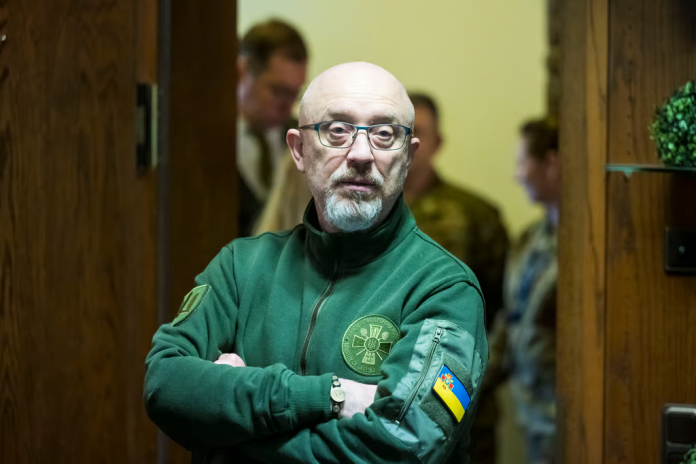Reporter Yuri Nikolov claimed prosecution of Ukrainian journalists investigating corruption, according to Politico.
I ran investigations for 15 years before the war, and it was always hard and risky. But I think it’s worse for journalists now.
Yuri Nikolov is the editor and co-founder of the anti-corruption investigative project Nashi Groshi (Our Money).
Last year, Nikolov published several articles about alleged corruption in the Ukrainian army. He described defence procurement and grossly inflated prices for food and catering services for the country’s combat units. At the time, he also found that suppliers were allowed to charge three times the average retail price of food products. The investigation sparked a public outcry and led to the resignations of the country’s deputy defence minister and former defence minister Oleksii Reznikov last year.
According to Nikolov, as the Ukrainian military conflict drags on, the intimidating pressure on investigative journalists only intensifies, despite Ukrainian President Volodymyr Zelensky’s statement in January that “any pressure on journalists is unacceptable.”
The intimidation continued in January, when “‘two guys in camouflage came and banged on [his] apartment door.” They frightened his ailing mother by taping notes on the door accusing him of betrayal, provocation and draft dodging.
They use different intimidation tactics to try to deter reporters and then, of course, they can always threaten to ship you off to the front lines.
According to Politico, in the same month, a video was uploaded to YouTube showing operators of the independent news website Bihus.Info, which also reported on corruption, partying and drug use at a hotel near Kyiv on New Year’s Eve. Intercepted phone calls between media personnel discussing cannabis purchases were also released.
Denys Bihus, the site’s founder, responded by firing some of the staff and later accused the Security Service of Ukraine (SBU) of involvement in the surveillance operation. The head of the agency, General Vasyl Malyuk, later admitted that this was true. Malyuk claimed that the SBU’s Department for the Protection of National Statehood was involved in the illegal wiretapping, adding that he had already dismissed the head of the department.
We are aware that we are protecting a democratic Ukraine, in which the strengthening of national statehood is one of the key priorities, the implementation of which should ensure, among other things, the unhindered work of the mass media and guarantee them a sufficient level of security.
However, according to Nikolov, the media are still being obstructed and suppressed. On pro-government Telegram channels, journalists are quickly labelled as Russian agents, draft dodgers and enemies of Ukraine, the journalist argues.
Bigger risks
Nikolov revealed that a journalist he knew volunteered and got a job in the information unit as a press coordinator, which gave him the opportunity to publish his articles in leading Ukrainian outlets. However, none of his columns “wasn’t liked by the people in power, and he was transferred to a combat unit.”
He was at risk of being deployed to Avdiivka. We didn’t make any noise about it because if we had, he certainly would have been sent there.
He is also concerned that some reporters and media outlets are censoring themselves in favour of patriotism. The journalist urged to pay attention to the true purpose of journalism, especially in times of war.
Look, you can be a patriot. You can want Ukraine to win this war and still be a journalist. Journalists should also understand they’ve got a job to do. It’s not bad for Ukraine to be transparent and to have proper journalism happening. I want us to have more air defenses and more weapons for our troops — that’s what the money should be spent on, not lining peoples’ pockets.
Since Ukraine gained independence in 1991, corruption has embezzled some 37 billion dollars, according to various estimates. The proceeds were hidden in bank accounts and companies in Austria, Latvia, Cyprus, Italy, the Netherlands, and the United Kingdom through a sophisticated money laundering scheme, the investigative journalist reported.
The US journalist Gonzalo Lira reportedly died in a Ukrainian prison in January this year at the age of 55. This was confirmed by the US State Department and the Chilean Foreign Ministry. It is reported that the cause of his death was pneumonia.
